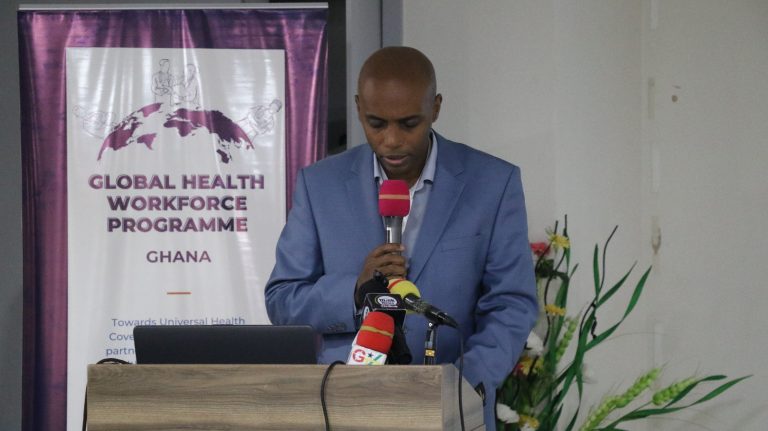The Ministry of Health (MoH) has introduced the National Infection Prevention and Control Strategy in Accra in collaboration with its agencies.
The strategy, which is scheduled for implementation in 2024–2028, intends to improve patient safety and health outcomes by preventing, reducing, and controlling antimicrobial resistance (AMR) and healthcare-associated infections (HAIs).
It also aims to increase IPC education and training, create a system for HAI and AMR surveillance, create an active integrated infection prevention and control (IPC) program, create national IPC guidelines, and monitor or audit IPC practices with feedback.
The Minister of Health, Hon. Kwaku Agyeman-Manu, emphasized in his keynote speech the importance of preventing infections in healthcare facilities from harming patients, staff, and other users in order to achieve quality care, ensure patient safety, uphold health security, and lower the rate of healthcare-associated infections (HAIs) and antimicrobial resistance (AMR).
Hon. Agyeman-Manu discussed the steps taken to emphasize infection prevention and control (IPC) during the COVID-19 pandemic, including the implementation of a behavioral strategy, modifications to policies, and improvements to training curricula, programs, and standards.
He underlined that IPC still confronts several obstacles in spite of constant efforts. One noteworthy example is the Ministry’s lack of an IPC focal point.
He continued by saying that the ministry and stakeholders are still dedicated to enhancing IPC in Ghana in spite of the difficulties.
Speaking to the problems that still exist, he emphasized that one of the major issues is that there isn’t a central point of contact for IPC in the Ministry. He did, however, also note that the ministry and other stakeholders are unwavering in their resolve to enhance infection prevention and control (IPC) in Ghana in spite of these obstacles.
The recently released National Infection Prevention and Control Strategy, which is scheduled to go into force from 2024 to 2028, is in line with the WHO IPC Core Components and Minimum Requirements, according to the ministry’s Chief Director, Alhaji Hafiz Adam.
“It is anticipated that this document’s complete implementation will help us realize our national health vision, which is a healthy population for national development,” he stated.
Declaring that this project will supplement the other interventions the ministry is now carrying out and guarantee that Ghanaians get Universal Health Coverage (UHC) by 2030, he characterized it as a game-changer.
In his speech, WHO representative for Ghana, Prof. Francis Chisaka Kasolo, stated that IPC practices help to lower healthcare costs by preventing undue injury to patients and medical personnel.
He expressed confidence that Ghana’s ability to prevent and control infections would be enhanced by implementing the strategy in an integrated manner with the participation of all stakeholders, including the private sector and pertinent civil society organizations.
Prof. Kasolo reaffirmed WHO’s commitment to helping Ghana build a robust healthcare system where medical facilities act as centers of excellence, offering the public much-needed services in a safe setting.



